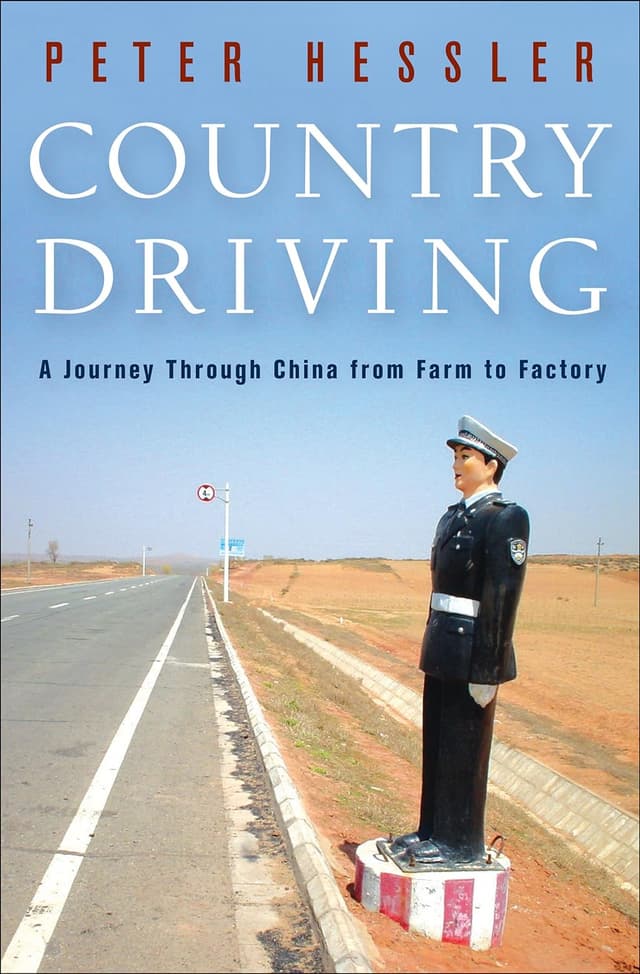Noah Brier | February 10, 2021
Why is this interesting? - The Vaccine Communications Edition
On efficacy, single shots, and optimism
Recommended Products

A book by Peter Hessler about his journey through China from the rural countryside to the factories of the urban frontier.
Noah here. It’s hard to have a conversation these days where vaccines don’t come up. Everyone I know is itching to get vaccinated and return to some semblance of normalcy. Any article we read, whether about politics, finance, or sports, has a vaccine angle. Each day we see updated charts with the number of people vaccinated and hear stories about how different areas are handling the process. On top of that, we now have a host of vaccines worldwide with different approaches and efficacy.
The most recent big announcement in the US was from Johnson & Johnson, which is almost certainly set to be the next FDA-approved vaccine. As opposed to the Moderna and Pfizer vaccines which are based on RNA, this new vaccine uses DNA delivered with a modified adenovirus, a version of a virus that can cause many common illnesses. The J&J approach has two big advantages over that of Pfizer and Moderna: it only requires a single dose and it can be stored at regular temperatures. From an excellent New York Times explainer on the vaccine:
Adenovirus-based vaccines for Covid-19 are more rugged than mRNA vaccines from Pfizer and Moderna. DNA is not as fragile as RNA, and the adenovirus’s tough protein coat helps protect the genetic material inside. As a result, the Johnson & Johnson vaccine can be refrigerated for up to three months at 36–46°F (2–8°C).
Why is this interesting?
When news came out about the results of the J&J trials, the focus was on the efficacy rate. Headlines like “Johnson & Johnson Vaccine Is 66% Effective In Preventing Moderate To Severe COVID-19” topped nearly every story. Understandably, if you compare that to the nearly 95 percent efficacy reported from the Pfizer and Moderna trials, it’s hard not to see the news as a bit disappointing. But that’s pretty far from the full story. That’s because the J&J trials were run very differently than the ones from Pfizer and Moderna:
Pfizer’s and Moderna’s trials were testing for slightly different criteria, with Pfizer counting cases from seven days after receipt of the second dose of vaccine and Moderna waiting till day 14 to start counting cases. Both tested for any symptomatic Covid infection.
J&J, by contrast, sought to determine whether one dose of its vaccine protected against moderate to severe Covid illness — defined as a combination of a positive test and at least one symptom such as shortness of breath, beginning from 14 or 28 days after the single shot. (The company collected data for both.)
Because of the difference in the trials, making direct comparisons is a bit like comparing apples and oranges. Additionally, Pfizer and Moderna’s vaccines were tested before the emergence of troubling new variants in Britain, South Africa, and Brazil. It’s not entirely clear how well they will work against these mutated viruses.
What’s more, a focus on efficacy runs a real risk of missing the big point, as articulated in a recent edition of the Future Perfect newsletter (sadly not available online):
But the most important thing here isn’t necessarily preventing cases –– it’s preventing transmission and severe illness and death. The vaccines appear to do that too! But as a consequence of how the first trials were conducted and reported, this fact about them –– the one more relevant in driving down the death toll and getting life back to normal –– has gotten much less attention.
The J&J vaccine was 85% protective against severe disease. That’s great news!
But there’s one more piece that is being frequently missed in discussing efficacy: J&J is a single-dose vaccine. While all the Pfizer and Moderna numbers are based on getting both shots of the mRNA vaccines, we know that’s not how the world works. Some amount of people will end up missing out on the second shot and end up with partial protection. As explained by Joseph Payne, the CEO of Arcturus who is also working on a single shot COVID vaccine, “you can define the success of a vaccine as the efficacy multiplied by the percent compliance. And for a single shot vaccine compliance is 100%. So it's not only convenient, but it makes it a more successful vaccine.” He’s obviously got a horse in that race, but it’s hard to deny the conclusion.
In the end, it’s all good news. We have a few vaccines that all seem incredibly effective at keeping people from getting very sick from COVID and more coming down the pipe. For any of us hoping to see friends and family again, we can’t get jabbed soon enough. (NRB)
House of the day:
Architects Pablo Saric and Cristian Winckler designed Casa SS in Canela, Chile, as a single-storey dwelling clad in charred pine just steps away from a dramatic coastline. (CJN)
Quick Links:
WITI book rec: Country Driving by Peter Hessler (CJN via NRB)
Say hello to iMac (CJN)
The gambler who cracked the horse racing code (CJN)
Thanks for reading,
Noah (NRB) & Colin (CJN)
—
Why is this interesting? is a daily email from Noah Brier & Colin Nagy (and friends!) about interesting things. If you’ve enjoyed this edition, please consider forwarding it to a friend. If you’re reading it for the first time, consider subscribing (it’s free!).

